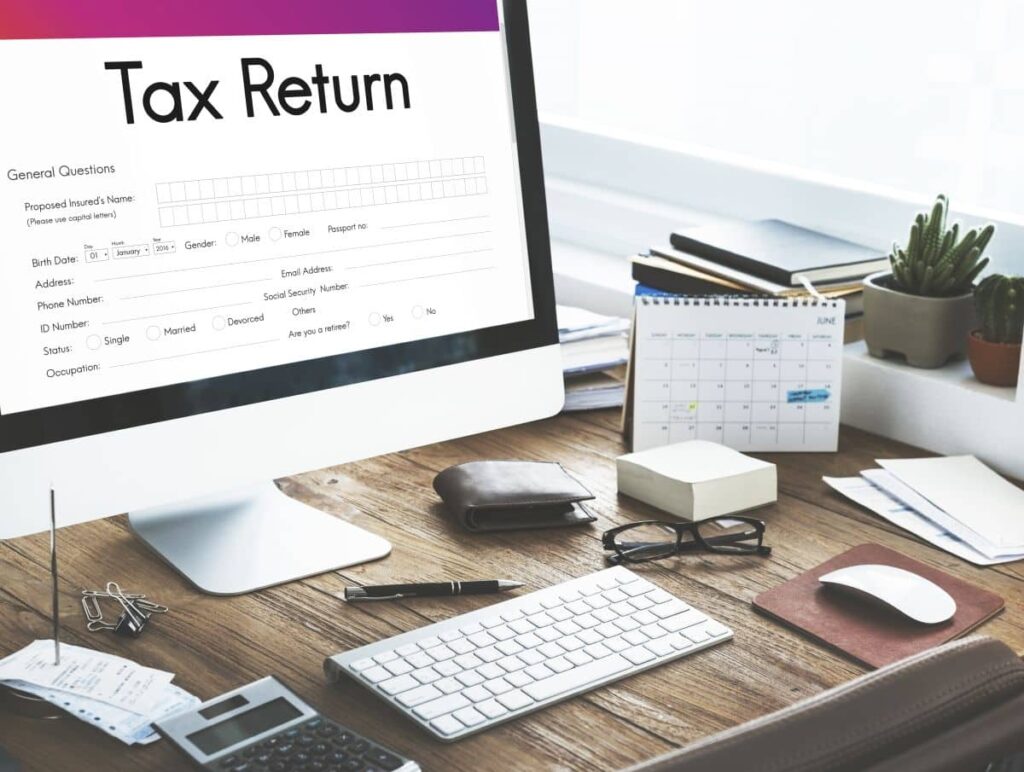Advice For Tax Time In Australia
Are you getting anxious about the next tax season in Australia? Don’t fret; you’re not the only one feeling this way. The time of year when taxes need to be filed can be stressful, but it doesn’t have to be. This piece on the site is loaded with helpful advice that will make filing your taxes a pleasure. Therefore, take a deep breath, put your feet up, and continue reading for some helpful hints that will make the process go more smoothly for you.
Even for those who have filed taxes in the past, the tax season in Australia can be difficult to understand. Therefore, make sure that you are prepared for this year’s event by following these easy guidelines! We have everything you need, whether this is your first time doing taxes or you just want to make sure you take advantage of every deduction to which you are eligible. Therefore, continue reading for information on a wide range of topics, including tax deductions, the Goods and Services Tax (GST), and income taxes!
Every year, thousands of people have trouble making heads or tails of the complicated tax system. However, if you have some assistance, filing your taxes will be a breeze. In this piece, we’ll offer some guidance on how to breeze through the annual filing of taxes in a timely and stress-free manner. In addition to that, we are going to go over some of the most typical errors that people make while completing their taxes.
Especially if you are a new resident of Australia, filing your taxes can be a difficult and bewildering process. This guide will assist in simplifying the process for you and ensure that you make it through tax time with the least amount of stress possible.
We will cover everything, from the paperwork you need to submit your taxes to how to estimate the amount of your tax return, so get everything you need before we begin. Read our helpful advice whether you live in Australia permanently or are simply there on a short vacation. It will come in handy in either case.
Are you one of the many people in Australia getting ready for the upcoming tax season? Or, are you one of the rare people that dreads the time of year we are currently in?
Regardless of how you feel about tax season, it is essential to ensure that you are doing all of the required steps to make it through the season in the most stress-free manner possible. In this blog article, we will share some pointers on how to make tax season easier, ranging from suggestions on how to better organize your documents to suggestions on how to collaborate with a tax professional more effectively.
If you are a taxpayer in Australia, you are aware that the time of year when taxes are due can be somewhat stressful. When you have to fill out all of that paperwork and attempt to recall everything you are eligible to claim, it can be difficult to know precisely what you need to do and how to go about doing it. But there is no need to fear because we are here to assist you! This blog post will provide you with some helpful hints and suggestions for handling your taxes most effectively this year.
Are you having a hard time figuring out how your taxes will turn out this year? You’re not alone! The tax code in Australia can be difficult to understand, but you don’t need to worry about that since we’ve put up a guide that has all the information you require to make filing your taxes as simple as possible. Therefore, continue reading for advice on what papers to fill out, what deductions you might be qualified for, and further information. With any luck, following these tips will make filing your taxes a breeze for you!
The time of year when taxes need to be filed may be very stressful, and this is especially true if you are new to Australia. So, in order to make dealing with tax season a little less stressful, here are some pointers. To begin, you will want a tax identification number (sometimes known as a tax file number) (TFN). You can submit an application for one either online or in-person at a local branch of the Australian Taxation Office (ATO). When you have obtained your TFN, you are able to start the process of filing your tax return.
The Australian Taxation Office (ATO) provides a number of tools to help make the process as simple and straightforward as it can be, including an online portal and an app. Make sure that you meet the deadline for submitting your tax return so that you can avoid any penalties. And last but not least, make sure you take advantage of any deductions or credits that might be available to you.
Are you one of the millions of people in Australia who are required to submit a tax return each year? If so, you are required to do so. In that case, you are aware that the time of year when taxes are due can be very stressful. But that doesn’t mean that it has to be! Therefore, why not make the procedure a little bit easier by following some straightforward tips this year?
In this article, we will provide you with some advice that will make the process of filing your taxes simpler and less stressful. Therefore, continue reading in order to acquire useful information and sound counsel that will make the process simpler for you!
Let’s get started!
Taxation and Advisory Services
It is time to file taxes. Paper may be found just about anywhere. You do not have much more time left. How do you plan to ensure that you are getting the most deductions possible? Or, to make matters even worse, what will occur if the deadline is missed?
You can rely on our dynamic team of tax specialists to clear up any uncertainty you may have regarding the taxation system by providing you with an explanation of tax concerns in straightforward language and avoiding the use of any industry jargon in our communication with you.
Our goal is to make the process of complying with your personal or business tax obligations as straightforward and stress-free as is humanly possible.
We offer comprehensive tax assistance, which means that whether you are an entrepreneur beginning a new firm or an existing business owner dealing with complex taxation difficulties, our staff has the knowledge and experience to offer all of the pertinent tax advice you require.
Does this ring a bell? It is not necessary for any way. At tax time, you don’t need to worry about anything. Allow us to investigate the possibility of extra deductions, clarify your tax returns, and respond to any questions you may have.
How We Can Be of Service
We work hard to ensure that the outcome of your taxes is as favourable as it can possibly be. Regardless of whether you are an individual, a partnership, a trust, a corporation, or an SMSF, we will work with you to find additional deductions that you may not be claiming, prepare the necessary documentation, and, as a result, minimize the amount of concern that you experience.
Have some peace of mind and spend your time doing what you’re good at, which is concentrating on your professional and personal life, respectively.
As a prospective customer, all you have to do to take the first step toward an easier tax season is organize a meeting with us that is both free and comes with no strings attached. After that, you will be able to schedule a consultation with one of our chartered accountants.
You, as a customer, will get the following perks:
- Our persistent dedication to maximizing the effectiveness of your overall tax preparation;
- Having identified any potential sources of risk and taken measures to mitigate them using tactics applicable in the actual world;
- being in complete compliance with all of your tax requirements;
- With the knowledge that our staff possesses, please allow us to respond to your inquiries and supply you with the necessary comprehension;
- The assistance you require in order to make educated decisions on taxation.
Accounting services with Predetermined Price Structures and Competitive Fees
You won’t have to make any concessions when it comes to quality when you work with us. Take comfort in the fact that our pricing is always the same and that our services are within your budget. When it comes to your accounting budget, having clarity over your expenses indicates that you have control over it.
The following are the areas in which our team has particular expertise:
1. Preparation of income tax returns and audited financial accounts (all entity types)
Regardless of whether you interact with our taxation experts or not, our team will create accurate financial statements and income tax returns for each of the entity types that you own or control.
2. Concessions Awarded to Small Business Entities (SBE)
Mainly due to the fact that there is a wide range of concessions for small business entities, all of which are complex and are always being updated. If you do not have the support of a professional, it can be challenging to keep up with all of the concessions that are open to your small business.
Together, we will find all of the concessions that are available to your small business, explain them, and make sure that you understand any significant changes to your circumstances that may have occurred.
3. Capital Gains Tax (CGT)
If you are thinking about selling an asset, you should get the help of a specialist so that the Capital Gains Tax (CGT) will work for you rather than against you.
In the following areas, we are able to assist you:
- obtaining and maintaining ownership of CGT assets;
- The sale of an asset and other so-called “CGT events”
- Exemptions, rollovers, and concessions related to the capital gains tax;
- Your home and any other properties you own;
- Shares as well as units
4. Goods and Services Tax (GST)
All of your problems with regard to GST will be handled by our chartered accounting business. Therefore, whether you are selling a business, selling property, selling land, importing goods, or just having general concerns about your GST affairs, we look forward to putting your mind at ease regarding your GST liability. Whether you are selling a business, selling property, selling land, importing goods, or just having general concerns about your GST affairs.
5. Fringe Benefits Tax (FBT)
Learn with the help of our qualified services. Your FBT affairs will be managed proficiently so as to guarantee the following outcomes:
- Your company complies with all regulations;
- As an employee, your compensation is organized in a resourceful manner;
- Your questions regarding the FBT have been answered.
Business Tax Return Services

Do you feel that the process of preparing a tax return for your company fills you with dread?
In the Australian business tax environment, which is governed by constantly changing and growing legislation, trying to understand your tax obligations can be confusing and even overwhelming. This is the case regardless of the size of your business or whether you operate as a sole trader, a small business owner, or a large company with many employees.
We don’t only prepare business tax returns. We will ensure that all of the applicable rules and regulations are followed by your company so that you may run it smoothly. At the same time, we take measures to ensure that we legally reduce the amount of tax that your company is required to pay.
Listed below are some examples of the several business tax choices that are currently available to Australian companies. These are just some of the topics that we will advise you on to guarantee that we lawfully minimize your company’s tax payments. We will also advise you on a number of other concerns as well.
- Instant write-off of business assets An instant write-off of business assets enables small businesses (with an annual turnover of less than $500 million) to claim immediate deductions (up to a maximum amount of $150,000) for purchases of new or used plant and equipment assets, such as vehicles, tools, and office equipment. This type of write-off is available to businesses that meet certain criteria.
- Making a claim for the depreciation of a business asset A depreciating asset is an asset that has a finite life expectancy (useful life), and it is reasonable to anticipate that it will drop in value (depreciate) during the course of the time that it is used. In most cases, you are eligible to claim a tax deduction for the amount that an asset’s value has decreased by on an annual basis during the course of its useful life.
- Expenses that have been pre-paid: Companies that have a turnover of less than $10 million are eligible to claim an instant deduction for expenses that have been pre-paid for up to a year. By making these prepayments, you will be able to push forward your deductions, so reducing the amount of tax you are required to pay for the current fiscal year.
- Expenses related to business accounts and loans — In some circumstances, you may be able to deduct from your taxes the interest that you spent on any form of business financing. Loans for businesses, credit lines, and even your personal credit card might all fall under this category of financing options.
- Deductions for personal contributions to superannuation If you made personal contributions to a compliant super fund or a retirement savings account (RSA) during the year, you may be eligible to claim a deduction for those payments on your taxes.
Putting your tax return, whether it is a return for an ABN, a return for a sole trader, a return for a small business, or a return for a large company, in the experienced hands of Crest Accountants will give you peace of mind so that you can focus on more important things, such as the operation of your business.
Tax guidance that is more general
Do not waste your time or money on advice regarding taxes that is below average. Listed below are just a few examples of the basic tax guidance that we provide for our clients:
- taxable income as well as deductions that are permitted;
- Earnings from Personal Services;
- Non-commercial losses;
- tax losses that have been carried forward;
- Elections Regarding Family Trusts;
- Other common concerns regarding taxes.
1. Maintaining a working relationship with the Australian Taxation Office
Imagine that the Australian Taxation Office has been in touch with you during the past few weeks (ATO). If this is the case, we are able to take on the role of your tax agent and communicate with the ATO on your behalf. We will ensure that the ATO receives accurate information from you and will also explain what the ATO anticipates from you.
2. Taxation on a global scale
When dealing with tax authorities in other countries, you should take advantage of the peace of mind that our present customers enjoy as well as the professional guidance that is available to you. Do the tax laws of Australia have any bearing on your life as a foreign resident? We are able to provide you with sound advice on your taxation duties and make certain that you comprehend your Australian tax liability.
3. Small Business Capital Gains Tax deductions
Are you looking to sell a business asset? There is a possibility that you could qualify for a tax break on capital gains applicable to small businesses. Your potential qualification for this can significantly cut your capital gains tax bill, and in some cases it could even wipe it out entirely.
It is essential that you communicate with us and seek premium accounting advice so that we can successfully advise you on how to structure the transaction and access any concessions to which you are eligible.
Additional help with your taxes is available from our experts in the following areas:
- Expatriate tax concerns;
- Statements of Business Activity (also known as BAS);
- Taxes and Duties Collected by the State;
- Accounting for the Tax Effects;
- Consolidation of Taxes;
- Pricing for Transfers;
- R&D tax advisory services;
- Employment Taxes.
Your Tax Planning Specialists
If one of your objectives for this year is to exercise better control over your finances, then you should incorporate tax planning into your overall strategy.
Tax planning refers to the process of strategically organizing one’s affairs in order to minimize one’s tax burden and maximize one’s tax savings while adhering to the spirit of the law. To put it more simply, it is the process of analyzing one’s financial condition and putting in place systematic modifications in order to secure the lowest possible tax consequence.
In most cases, tax planning will center on one of these three goals:
- decreasing one’s income;
- raising the threshold for deductions;
- making use of the more favorable tax rates that are currently accessible.
These goals can be accomplished through the application of three fundamental tax planning strategies:
- transferring income to an entity with a reduced effective tax rate;
- shifting the profit or loss from one year to the next;
- investments with a lower overall tax burden.
Compliance is crucial, despite the complexity of the tax code. Therefore, a comprehensive understanding of tax laws and regulations is required in order to locate and make use of any potential tax concessions and savings. We have the necessary experience to reduce your tax liability and assist you in accomplishing your primary goals.
1. How Effective Tax Planning Can Be of Assistance
Tax planning can be of tremendous assistance to one’s bottom line, regardless of whether one is the proprietor of a business, an investor, or a person. It is the most effective instrument for improving your tax situation, putting you in a position to pay less in taxes and get a better return on those payments.
Tax planning can offer insightful projections that allow you to avoid unpleasant and often expensive surprises, budget for the next year of tax payments, and make better-informed decisions that could reduce your tax liability. In addition, tax planning can offer insightful projections that allow you to plan for the next year of tax payments. All of this can be of tremendous assistance in controlling cash flow, both during peak and off-peak periods for your company.
The following is a list of the most frequently used methods that we have:
- Making deductible superannuation contributions;
- putting off earning money whenever it’s possible;
- analyzing the situation and canceling any unpaid bills;
- Investigating the possibility of achieving negative gearing;
- Utilization of both deductible losses on income tax returns and capital losses;
- ensuring that the timing of your invoices is accurate;
- Expense prepayments, e.g. leasing rent;
- Examine your stock before the end of the year;
- Utilizing discounts offered to small businesses;
- evaluation of tax breaks associated with the purchase of fixed assets.
2. Our Process
We are aware that the specifics of each individual’s life are one-of-a-kind; as a result, no two tax planning strategies are the same. In order to develop a strategy to help you obtain the best possible result with regard to your taxes, we follow a four-step procedure. The following outlines our procedure:
First Step: Conducting a Review and Analysis
In order to acquire a thorough picture of your financial condition, we collect and analyze the crucial financial information that you provide.
Step 2: Choose tax planning techniques
After that, we combine our knowledge and experience with the information contained in our database to choose the techniques that, when applied to your specific situation, yield the best results.
Step 3: Filling Out Reports
We create a comprehensive report on the tax savings that were achieved through the chosen tax planning tactics and their subsequent implementation with the help of our specialized tax planning software.
Phase 4: Putting It All Into Action
We go over the process of implementation to ensure that you comprehend each phase as well as the available choices. After that, we will work to put the concepts into action by creating an action plan for you that is straightforward and simple to understand.
3. Tax planning for companies and organizations
Is your company paying the least amount of tax that it possibly can? We will organize your company in such a way that it will receive the greatest possible tax return while at the same time meeting all of its tax requirements. Our tax accountants are able to create individualized solutions that are tailored to fit the requirements of organizations and companies of any structure.
Our services in tax planning may be of assistance with the following:
- Annual tax estimate preparation;
- arranging of firms in order to get the most possible tax effectiveness;
- Tax estimate scenarios;
- Financial modelling and projections of cash flows;
- escape tactics that are friendly to the tax man;
- costs related to depreciation and capital expenditures;
- CGT estimates;
- The implementation of CGT concessions for small businesses.
No matter what stage your company is in, the knowledgeable tax planners we have on-staff are able to assist you. Our primary objective is to help you create wealth, nurture its growth, and guard it so that you can enjoy a happy and secure future.
4. Financial preparation for personal taxes
Are you paying the appropriate amount of tax? By utilizing our tax planning services, you may regain control of your financial situation and position yourself favourably for future success. In order to assist you in paying the least amount of tax possible, we tailor our tax estimates to the specific requirements and demands of each client.
We are able to assist you in determining where you should invest your money before the conclusion of the fiscal year so that you may make educated decisions regarding your assets.
Our services for tax planning include the following:
- Annual tax estimate preparation;
- Professional guidance on tax matters;
- Tax Planning optimisation;
- Tax estimate scenarios;
- CGT estimates;
- Taxation audit assistance;
- Fringe Benefits Tax;
- Strategies based on negative gearing;
- Investment property estimations;
- Superannuation contribution scenarios.
Our highly trained tax advisors will point you on the appropriate route to reduce the amount of tax you owe while simultaneously achieving the most favourable tax result for you.
Deceased Estates Accounting

The departure of a loved one is always a difficult moment, but the complexities of dealing with a deceased person’s estate can make things even more difficult. When you are grieving the loss of a loved one, it is the very last thing you want to have to cope with.
Our accounting professionals that specialize in deceased estates can assist make this difficult period a little bit easier for you by taking care of their tax problems on their behalf. In addition, if you would like, we are able to designate a legal representative on your behalf to handle all of the legal responsibilities, including their financial matters with the tax authorities.
We are able to help you with:
- The deceased individual’s final tax return;
- Applications for a Federal Estate Tax File Number;
- Missing Tax File Numbers;
- Estate income tax returns;
- Solicitor liaisons;
- collecting any death benefits that are due;
- Taking into account the tax liabilities of the estate.
Engage in the services of seasoned accountants that specialize in the administration of deceased estates, and you can rest easy knowing that we will handle all of your estate tax responsibilities.
FAQs
1. I have to buy tools and equipment for my job. What can I claim on my tax?
You are allowed to deduct any costs that you have incurred in the process of replacing, insuring, or repairing the instruments of the trade that you use in the production of your income. Depreciation must be done, however, on any item with a price tag of more than $300 if it was purchased (i.e. claimed over its useful life).
The amount that you are eligible to claim will be determined by the receipts that you have saved and the degree to which you use them for activities that generate revenue. In the event that you find yourself in a circumstance in which you do not have your receipts and are wondering what you can claim, you are permitted to claim any amount that is less than $300 without evidence of purchase.
2. My job requires me to keep my knowledge up to date, and I buy books and journals. Can I claim them all?
If you are required to acquire technical books, trade publications, or journals in order to perform your job functions effectively, the cost of those purchases may be deducted from your taxable income.
3. I have a job that requires me to be on the road a great deal, and I have to use my car. What do I need to do to claim a tax deduction for my car?
When it comes to deducting costs associated with using a vehicle for business, there are two distinct approaches, each of which has its own set of record-keeping prerequisites.
Keeping a logbook and all of your spending receipts is highly recommended if you want to employ the strategy that will give you the highest possible return on your claim (e.g. insurance, registration, repairs, services, tyres, etc.). However, you do not need to preserve receipts for gasoline because we are able to compute that amount for you using a formula that takes into account the yearly average.
Your logbook should be kept for a least twelve weeks in a row, and in general, it will be valid for five years unless there are major changes in your circumstances. The minimum amount of time your logbook should be kept for is twelve weeks. You must also record the readings that were taken at the beginning and end of each year on the odometer.
You are not required to use the same type of reimbursement every year. Instead, the choice of approach ought to be made according to which of the available options is more advantageous to you and for which of the available options you have the necessary records.
If you do not have an up-to-date logbook and you have thrown away some or all of your receipts, your options for how to handle the situation will be restricted. However, if your car is included in your wage package, you are not allowed to claim any of your car’s expenses.
4. I have just received a letter from the tax office saying that I did not declare interest from my bank account. What should I do?
If you have reason to feel that this is not accurate, you should get in touch with your financial institution so that they can verify the specifics of your income for your accounts. If this information is inaccurate, the bank is required to provide written notification to the ATO.
You have a total of 28 days to make the necessary changes to this information. If, on the other hand, you failed to include the taxable income, you do not need to get in touch with the ATO. Instead, they will seek an amendment to your return and issue you a new assessment that includes a demand for payment of the excess tax, a charge for general interest, and in some instances, penalties.
5. What is a Living Away From Home Allowance?
When an employer requires an employee to work in a location that is different from their typical place of employment and the employer pays the costs to the employee for living away from home, the employer is obligated to pay the employee a living away from home allowance.
For instance, I work and reside in Melbourne, but in a few months, my employer will ask me to relocate to Regional New South Wales in order to complete some job there. I will be there for a few months. Because they have asked me to work in regional New South Wales for a period of time, they provide me with a stipend to help cover the costs of living there.
Because this is not considered taxable income, I am exempt from filing a tax return at this time. It is a payment made by an employer to an employee that is exempt from taxation on the part of the employee, provided that the payment is made in accordance with the recommendations of the tax office. This allowance cannot be used to reimburse any costs in any way.
Since October 1, 2012, the LAFHA has been subject to the employer’s share of the Fringe Benefits Tax. This taxation began on that day. On the other hand, the employer has the ability to reduce the amount of Fringe Benefits Tax that is owed by the employee for a maximum term of twelve months, providing that the employee satisfies the following conditions:
- keeps a residence in Australia for their own use and enjoyment at all times, while being compelled to live elsewhere due to the nature of their employment;
- offers a remark concerning the act of living away from one’s family.
In the event that these guidelines are adhered to, the employer has the ability to lower the taxable value of the LAFHA by:
- the total amount that the employee really spent on verified housing expenses while they were away from home;
- the amounts that the employee incurred for the expense of food or drink while living away from home, less a statutory amount if one applies.




















